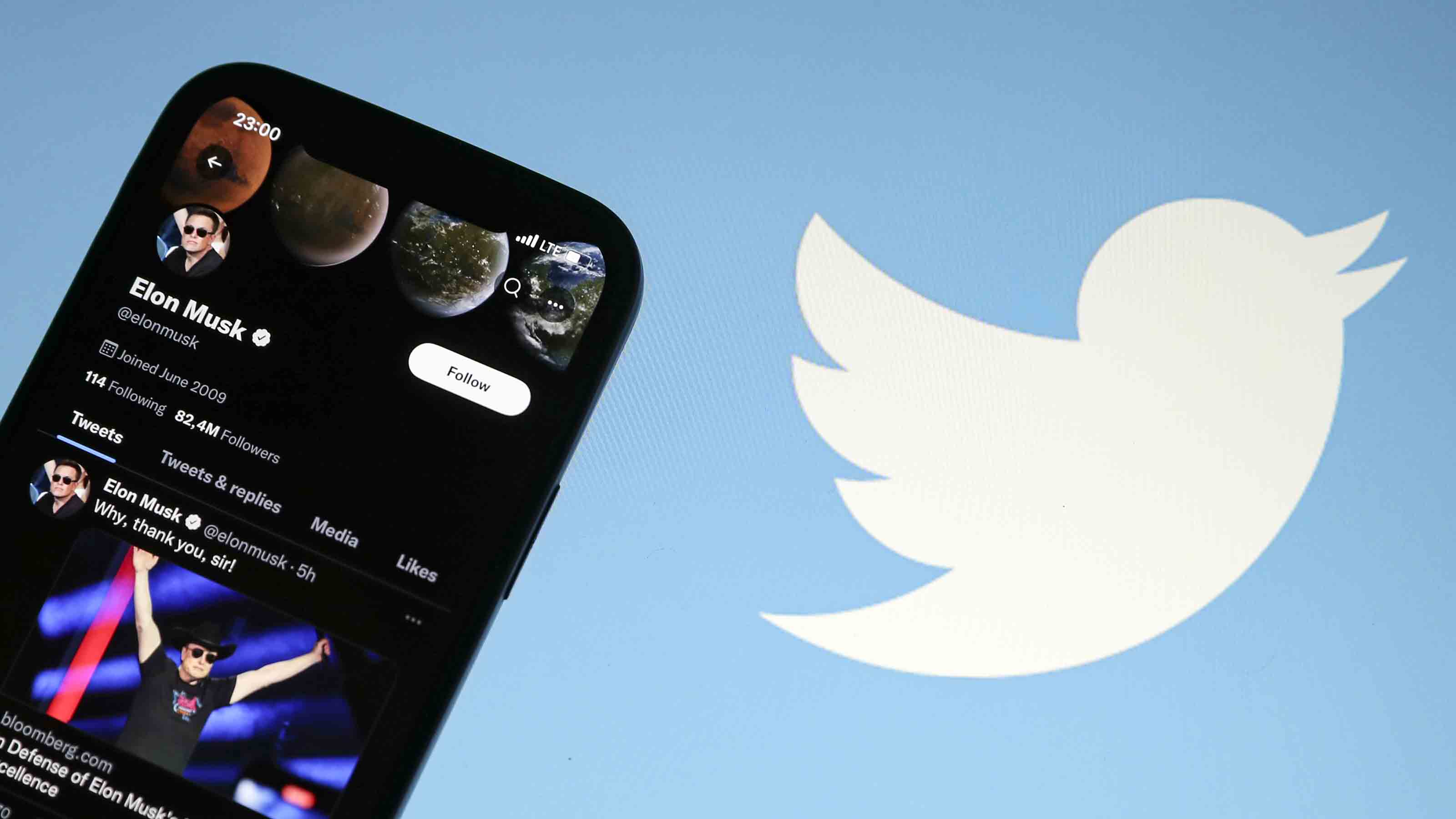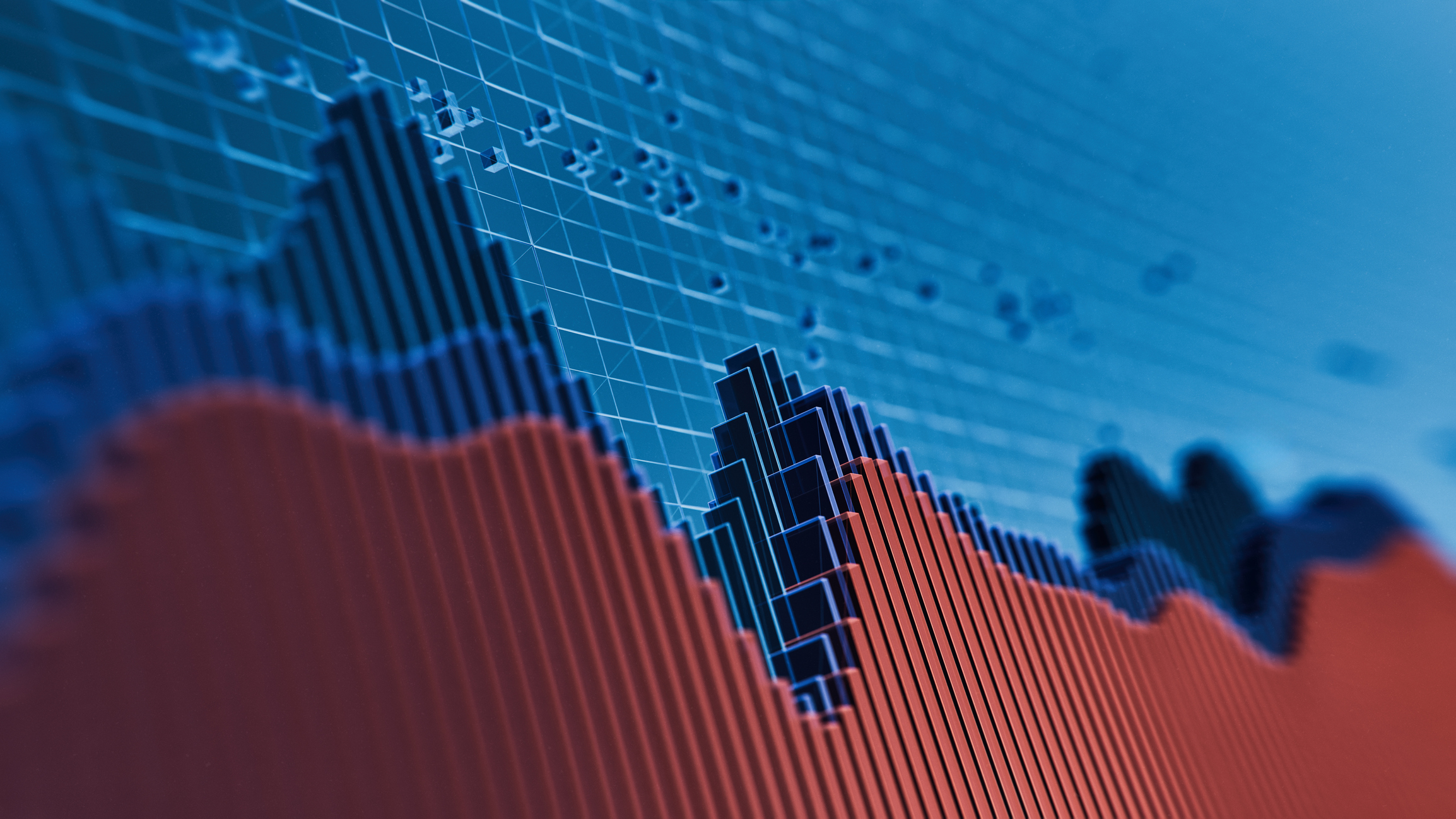Musk's Coup Complete With $44B Buyout of Twitter
Twitter's board buckles, blesses Tesla CEO's bid, putting a likely end to what has been a mostly disappointing stock.


Profit and prosper with the best of Kiplinger's advice on investing, taxes, retirement, personal finance and much more. Delivered daily. Enter your email in the box and click Sign Me Up.
You are now subscribed
Your newsletter sign-up was successful
Want to add more newsletters?

Delivered daily
Kiplinger Today
Profit and prosper with the best of Kiplinger's advice on investing, taxes, retirement, personal finance and much more delivered daily. Smart money moves start here.

Sent five days a week
Kiplinger A Step Ahead
Get practical help to make better financial decisions in your everyday life, from spending to savings on top deals.

Delivered daily
Kiplinger Closing Bell
Get today's biggest financial and investing headlines delivered to your inbox every day the U.S. stock market is open.

Sent twice a week
Kiplinger Adviser Intel
Financial pros across the country share best practices and fresh tactics to preserve and grow your wealth.

Delivered weekly
Kiplinger Tax Tips
Trim your federal and state tax bills with practical tax-planning and tax-cutting strategies.

Sent twice a week
Kiplinger Retirement Tips
Your twice-a-week guide to planning and enjoying a financially secure and richly rewarding retirement

Sent bimonthly.
Kiplinger Adviser Angle
Insights for advisers, wealth managers and other financial professionals.

Sent twice a week
Kiplinger Investing Weekly
Your twice-a-week roundup of promising stocks, funds, companies and industries you should consider, ones you should avoid, and why.

Sent weekly for six weeks
Kiplinger Invest for Retirement
Your step-by-step six-part series on how to invest for retirement, from devising a successful strategy to exactly which investments to choose.
Elon Musk is buying Twitter (TWTR, $51.70) for $44 billion and taking the social media platform private.
Twitter's board of directors accepted the Tesla (TSLA) CEO's offer of $54.20 a share late Monday. Thus marks the likely end to a three-week drama that at times appeared to veer between comedy and even farce.
After all, with Musk, it can sometimes be difficult to tell the difference. But once the world's richest person lined up more than $46 billion in financing over the past few days, it became clear that his buyout bid was no joke.
From just $107.88 $24.99 for Kiplinger Personal Finance
Become a smarter, better informed investor. Subscribe from just $107.88 $24.99, plus get up to 4 Special Issues

Sign up for Kiplinger’s Free Newsletters
Profit and prosper with the best of expert advice on investing, taxes, retirement, personal finance and more - straight to your e-mail.
Profit and prosper with the best of expert advice - straight to your e-mail.
And make no mistake, it's a seriously good deal for TWTR shareholders.
Elon Musk's Buyout Deal for Twitter: The Basics
At $44 billion, Musk is paying a premium of 21% to Twitter's enterprise value, or its theoretical takeout price that accounts for both debt and cash.
The deal looks even better when you consider what the market thought about Twitter prior to Musk's interest – which is to say, not much.
Musk is paying a 38% premium to where TWTR stock traded before the mercurial billionaire disclosed his original 9.1% ownership stake in early April. Even more impressively, Musk's Twitter buyout equals a whopping 54% premium to what he paid when he first began building the position in late January.
The fact is that the market has been very down on Twitter stock for a very long time. Analysts' consensus recommendation has been stuck at Hold for six years, according to S&P Global Market Intelligence.
And with good reason.
Twitter Is Great, But TWTR … Not So Much
Twitter is a classic example of a company with a great product and a fantastic brand – but a bad business. The advertising model that works so well for passive, lean-back screen experiences like television doesn't translate to the active, lean-in engagement process of scrolling and tweeting.
"Twitter does $3.5 billion a year in revenue, a business roughly the size of the Olive Garden," tweeted Josh Brown, CEO of Ritholtz Wealth Management. "You have to admit today is hilarious."
That disconnect between product and business explains why Twitter stock has been such a disappointment for much of its relatively short life in the public market.
TWTR's initial public offering (IPO) priced at $26 a share on Nov. 7, 2013. Musk's takeout price means anyone still hanging around on the IPO cost basis is sitting on a gain of 108%. That's pretty weak, considering the S&P 500 booked a price gain of 141% over the same period.
Musk's Twitter buyout price is also of little solace to anyone who bought the stock when it was hitting all-time highs in early 2021. TWTR once topped out above $77 a pop. Selling to Musk at $54-and-change means taking a loss of 30%.
If nothing else, Musk's involvement in TWTR stock gave it a catalyst analysts had been praying for – and were grateful to receive.
Plenty of them were rooting for Musk to prevail. Some even viewed a potential loss for him as an eventual win for shareholders. As CFRA Research analyst Angelo Zino (Hold) told clients last week:
"We do believe Musk's recent endeavors ultimately ends up being a positive for long-term shareholders even if a deal is thwarted, as it likely lights a fire under the management team (something will need to fundamentally change)."
The ink isn't dry; the deal is far from closed. But the way things look right now, Twitter shareholders won't have to worry about Twitter stock for much longer.
Twitter – all of it – will be Elon Musk's problem, and his alone.
Profit and prosper with the best of Kiplinger's advice on investing, taxes, retirement, personal finance and much more. Delivered daily. Enter your email in the box and click Sign Me Up.

Dan Burrows is Kiplinger's senior investing writer, having joined the publication full time in 2016.
A long-time financial journalist, Dan is a veteran of MarketWatch, CBS MoneyWatch, SmartMoney, InvestorPlace, DailyFinance and other tier 1 national publications. He has written for The Wall Street Journal, Bloomberg and Consumer Reports and his stories have appeared in the New York Daily News, the San Jose Mercury News and Investor's Business Daily, among many other outlets. As a senior writer at AOL's DailyFinance, Dan reported market news from the floor of the New York Stock Exchange.
Once upon a time – before his days as a financial reporter and assistant financial editor at legendary fashion trade paper Women's Wear Daily – Dan worked for Spy magazine, scribbled away at Time Inc. and contributed to Maxim magazine back when lad mags were a thing. He's also written for Esquire magazine's Dubious Achievements Awards.
In his current role at Kiplinger, Dan writes about markets and macroeconomics.
Dan holds a bachelor's degree from Oberlin College and a master's degree from Columbia University.
Disclosure: Dan does not trade individual stocks or securities. He is eternally long the U.S equity market, primarily through tax-advantaged accounts.
-
 The New Reality for Entertainment
The New Reality for EntertainmentThe Kiplinger Letter The entertainment industry is shifting as movie and TV companies face fierce competition, fight for attention and cope with artificial intelligence.
-
 Stocks Sink With Alphabet, Bitcoin: Stock Market Today
Stocks Sink With Alphabet, Bitcoin: Stock Market TodayA dismal round of jobs data did little to lift sentiment on Thursday.
-
 Betting on Super Bowl 2026? New IRS Tax Changes Could Cost You
Betting on Super Bowl 2026? New IRS Tax Changes Could Cost YouTaxable Income When Super Bowl LX hype fades, some fans may be surprised to learn that sports betting tax rules have shifted.
-
 If You'd Put $1,000 Into AMD Stock 20 Years Ago, Here's What You'd Have Today
If You'd Put $1,000 Into AMD Stock 20 Years Ago, Here's What You'd Have TodayAdvanced Micro Devices stock is soaring thanks to AI, but as a buy-and-hold bet, it's been a market laggard.
-
 Dow Rises 313 Points to Begin a Big Week: Stock Market Today
Dow Rises 313 Points to Begin a Big Week: Stock Market TodayThe S&P 500 is within 50 points of crossing 7,000 for the first time, and Papa Dow is lurking just below its own new all-time high.
-
 Nasdaq Leads Ahead of Big Tech Earnings: Stock Market Today
Nasdaq Leads Ahead of Big Tech Earnings: Stock Market TodayPresident Donald Trump is making markets move based on personal and political as well as financial and economic priorities.
-
 11 Stock Picks Beyond the Magnificent 7
11 Stock Picks Beyond the Magnificent 7With my Mag-7-Plus strategy, you can own the mega caps individually or in ETFs and add in some smaller tech stocks to benefit from AI and other innovations.
-
 If You'd Put $1,000 Into UPS Stock 20 Years Ago, Here's What You'd Have Today
If You'd Put $1,000 Into UPS Stock 20 Years Ago, Here's What You'd Have TodayUnited Parcel Service stock has been a massive long-term laggard.
-
 If You'd Put $1,000 Into Lowe's Stock 20 Years Ago, Here's What You'd Have Today
If You'd Put $1,000 Into Lowe's Stock 20 Years Ago, Here's What You'd Have TodayLowe's stock has delivered disappointing returns recently, but it's been a great holding for truly patient investors.
-
 Stocks Extend Losing Streak After Fed Minutes: Stock Market Today
Stocks Extend Losing Streak After Fed Minutes: Stock Market TodayThe Santa Claus Rally is officially at risk after the S&P 500's third straight loss.
-
 If You'd Put $1,000 Into 3M Stock 20 Years Ago, Here's What You'd Have Today
If You'd Put $1,000 Into 3M Stock 20 Years Ago, Here's What You'd Have TodayMMM stock has been a pit of despair for truly long-term shareholders.